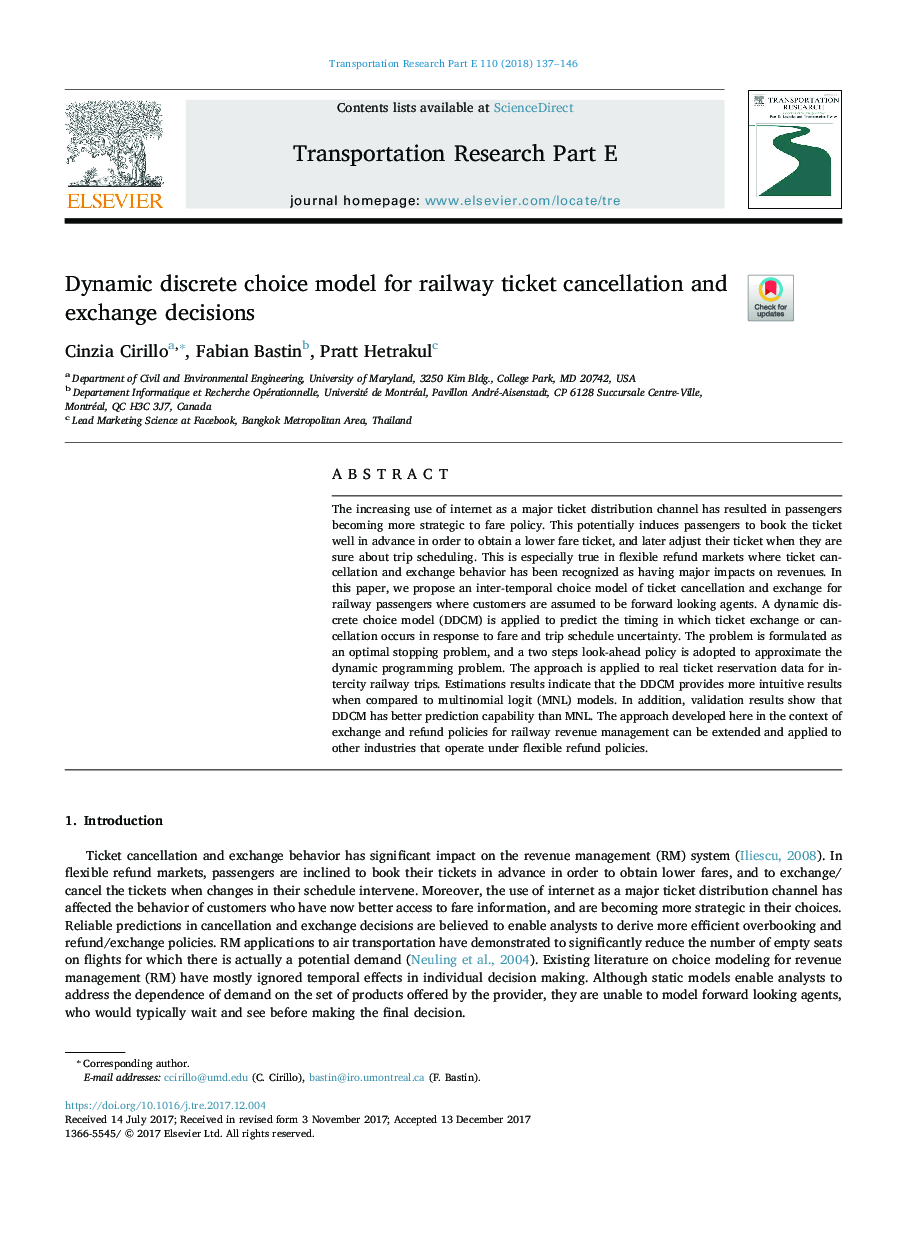| Article ID | Journal | Published Year | Pages | File Type |
|---|---|---|---|---|
| 7427892 | Transportation Research Part E: Logistics and Transportation Review | 2018 | 10 Pages |
Abstract
The increasing use of internet as a major ticket distribution channel has resulted in passengers becoming more strategic to fare policy. This potentially induces passengers to book the ticket well in advance in order to obtain a lower fare ticket, and later adjust their ticket when they are sure about trip scheduling. This is especially true in flexible refund markets where ticket cancellation and exchange behavior has been recognized as having major impacts on revenues. In this paper, we propose an inter-temporal choice model of ticket cancellation and exchange for railway passengers where customers are assumed to be forward looking agents. A dynamic discrete choice model (DDCM) is applied to predict the timing in which ticket exchange or cancellation occurs in response to fare and trip schedule uncertainty. The problem is formulated as an optimal stopping problem, and a two steps look-ahead policy is adopted to approximate the dynamic programming problem. The approach is applied to real ticket reservation data for intercity railway trips. Estimations results indicate that the DDCM provides more intuitive results when compared to multinomial logit (MNL) models. In addition, validation results show that DDCM has better prediction capability than MNL. The approach developed here in the context of exchange and refund policies for railway revenue management can be extended and applied to other industries that operate under flexible refund policies.
Related Topics
Social Sciences and Humanities
Business, Management and Accounting
Business and International Management
Authors
Cinzia Cirillo, Fabian Bastin, Pratt Hetrakul,
